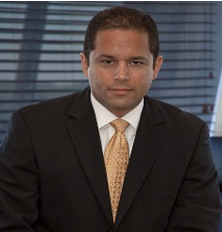Condo Law – When Can Kids Be Left Unattended At The Pool – Rules / Regulations
|
|
Cuevas, Garcia & Torres, P.A. .
Andrew Cuevas, Esq. – President Tel: (305) 461-9500 |
Introduction
Mr. Andrew Cuevas, Esq., is the President of Cuevas, Garcia & Torres, P.A., and Vantage Property Title Company. Cuevas, Garcia & Torres, P.A. provides legal services in the areas of Community Association Law, Real Estate law, and Business Immigration, including title insurance services through Vantage Property Title Company. If you have any questions regarding this article or any other questions, you can contact Mr. Cuevas at (305) 461-9500 or at [email protected] . If you are interested in reading previous newsletters, please visit www.cuevaslaw.com, select the icon for Newsletters , and then choose the area of law you are interested in.
When Can Kids Be Left Unattended At The Pool – Rules / Regulations
A question was recently posed to our firm as to whether Florida law provides for a legally appropriate age for minor children to be left unattended in the community pool without supervision. Florida has very few guidelines related to water safety and minor children. The Residential Swimming Pool Safety Act (the “Safety Act”), Section 515.23, Florida Statutes, was adopted in large part because the Florida legislature found that drowning is the leading cause of death of young children in this State, and that constant adult supervision is the key to accomplishing the objective of reducing the number of drowning or near-drowning accidents among young children in Florida. The Safety Act deals specifically with enclosing private residential swimming pools with protective barriers which deter minor children from accessing swimming pools without adult supervision, but it does not specify an age requirement for minor children to use the swimming pool without adult supervision. However, the Safety Act only applies to private residential swimming pools that are used by an individual, the individual’s family, and his/her guests. To the best of our knowledge, Miami-Dade County does not have an ordinance which specifies a legally appropriate age for when minor children may be left unattended in a swimming pool without adult supervision. In comparison, Broward County has recommended a minimum age of 12 years old.
What is frequently found in Rules and Regulations is language stating in effect that ” Children may not use the pool except in the presence and subject to the supervision of an adult .” In Florida a person becomes a legal adult upon reaching 18 years of age. Section 1.01(13), Florida Statutes. As a result, such a broad association rule may be discriminatory and/or could be in violation of the Fair Housing Act. As amended, Title VIII of the Civil Rights Act of 1968 (known more commonly as the Fair Housing Act), prohibits any discrimination based on race, color, national origin, religion, gender, familial status or handicap or disability in the sale, rental, and financing of dwellings and in other housing related transactions. Among other circumstances, “familial status” includes families with children under the age of 18 living with parents or legal custodians, pregnant women, and people securing custody of children under the age of 18.
In United States of America v. Plaza Mobile Estates, et al., 273 F. Supp. 2d 1084 (U.S.D.C. 2003), the Court held that rules requiring adult supervision for children under 18 years old using recreational facilities in a community, including the community swimming pool, were discriminatory and violated the Fair Housing Act because they treated children, and thus families with children, differently and less favorably than adult-only households. In addition, the Court in United States of America held that the ability to swim unsupervised is not solely dependent on age alone because in many cases young children can swim very well, while there are some older adults who cannot swim well.
It is illogical that, for instance, a 17-year old certified life guard who is a strong proficient swimmer would be prevented from swimming if unsupervised in the community pool because he/she is not 18 years old, while an older adult who is not a proficient swimmer would be allowed to swim unsupervised in the community pool. Violations of the Fair Housing Act could be punished by fines up to $11,500.00 for the first offense and up to $50,000.00 for repeated offenses, unlimited punitive damages if the case proceeds to federal court, and the violator could be held responsible for compensation for actual damages, including humiliation, mental distress, and loss of housing opportunity.
Though there is no hard and clear answer, a possible solution for the Association would be to provide for a more reasonable and less restrictive age restriction, such as providing that minor children under the age of 16 years old cannot swim in the community swimming pool without adult supervision. Alternatively, the Association may also consider including in the rules that persons who are not proficient swimmers may not use the community swimming pool without adult supervision. By focusing on the proficiency of the person swimming as opposed to the age, the Association would not be vulnerable to a lawsuit alleging age discrimination and violation of the Fair Housing Act.
This article is solely a partial explanation of all the issues related to the topic of this newsletter, and is not to be considered legal advice. The association should consult with its legal counsel to obtain explanations of all issues addressed herein and determine what it should do to minimize these types of claims.

 .
.